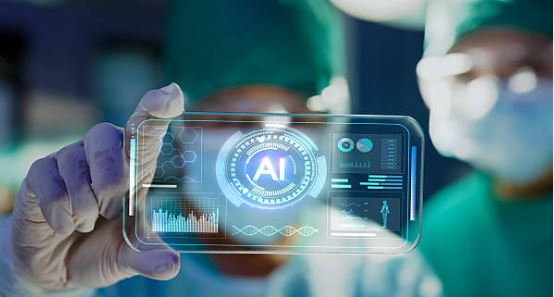“Collaboration has been key in order to ensure that Cardiomentor responds to real needs”
TECNALIA promotes the transformation of cardiology with generative artificial intelligence
Generative artificial intelligence in cardiology will be discussed at the SEC25 Congress of Cardiovascular Health with a session on Cardiomentor, a project coordinated by the Ministry for Digital Transformation and the Civil Service and validated by the Spanish Society of Cardiology (SEC), in which TECNALIA participates.
- “Cardiomentor is a collaborative project between several levels and organisations that aims to improve clinical training through the training and development of the Spanish model of generative artificial intelligence, ALIA,” explained Dr Julián Pérez-Villacastín, Head of the Project at the SEC.
In its first phase, Cardiomentor is working on heart failure, a highly prevalent disease which is the leading cause of hospital admissions here in people over 65 years of age. This disease is responsible for a high number of hospital admissions and has a high rate of morbidity and mortality during follow-up. Its prognosis is largely determined by early and appropriate diagnosis and optimised treatment.
- “Cardiomentor helps specialists involved in the care of heart failure patients to better understand this disease. In the future, the project could also consider other clinical scenarios such as atrial fibrillation or ischaemic heart disease,” Dr Pérez-Villacastín added. The SEC will have a key role in all this, offering its knowledge and experience in the approach to cardiovascular disease.
AI in healthcare: bringing clinical information closer in a simple way
According to María Jesús Martín Martín, Director of Artificial Intelligence Governance and Planning at the Directorate General of Artificial Intelligence of the Ministry for Digital Transformation and the Civil Service, projects like Cardiomentor are a great example of the value of AI in healthcare: offering clinical information in a much simpler and intuitive way, with natural language, and at the same time supporting time-consuming day-to-day tasks, such as summarising articles, structuring notes and drafting reports.
- “These capabilities do not replace professionals, but rather support them, freeing up time for what really matters: the relationship with the patient and clinical decision-making”, she highlighted.
- In such strategic sectors and with sensitive data such as healthcare, “it is essential to have a public infrastructure of language models, like the ALIA models, which not only guarantee information sovereignty, protection and control, but also adapt to our cultural and linguistic diversity,” explained María Jesús Martín.
- She also considers the project to be “especially valuable” because it connects very different profiles that offer complementary perspectives, including clinicians, researchers and technicians. “This diversity enriches the approach and ensures that the technology is built with the real needs of users in mind,” she said.
TECNALIA and the Barcelona Supercomputing Center (BSC) are the developers of Cardiomentor, a project that has also received technical support from the Institute for the Improvement of Healthcare Foundation (IMAS by its Spanish acronym).
A reliable tool for professionals
During the SEC25 Congress, Sergio Muñoz, Head of Digital Health at TECNALIA, highlighted that Cardiomentor offers a breakthrough in the application of generative AI in medicine. “Our aim is for Cardiomentor to be not only a technically robust tool, but also a useful and reliable one for healthcare professionals, supporting them in their daily work with rigorous, up-to-date and contextualised information”.
According to TECNALIA: “Collaboration with the SEC, IMAS Foundation and the BSC has been key in order to ensure that Cardiomentor responds to real needs. This synergy between science, technology and clinical medicine enables us to move towards more precise, preventive and personalised cardiology”.
- “Over the last few years, the BSC has been coordinating the development of the ALIA family of language models, in the different languages of Spain, and now we are starting to develop applications that directly benefit society. We are very proud of the development of CardioMentor, one of the first case studies to use the ALIA model, which can be used as a smart assistant and training tool for doctors, such as the heart failure application,” explained Andrés José Román Vieiros.
- “It is just one example out of many others in which the use of generative AI developed by the BSC aims to have a direct impact on various fields such as healthcare or the development of applications aimed at offering better public services, amongst other things.”
- Furthermore, “for the IMAS Foundation, following its goal to improve healthcare, the Cardiomentor project is an essential step towards the transformation of healthcare to meet the five-fold objective: Improved patient and professional experience, better health outcomes, greater efficiency and equity,” said Ignacio Ayerdi, IMAS Digital Health Coordinator.
- María Jesús Martín believes that projects such as Cardiomentor show that “artificial intelligence in healthcare is no longer a distant concept, but a practical tool which, applied with ethics and sovereignty, opens the doors to patient treatment from a new perspective”.
- Dr Pérez-Villacastín also pointed out that Cardiomentor “uses reliable and unbiased sources of knowledge, providing truthful and contrasted information, with the collaboration of expert cardiologists”.

